June 13 stands as one of history’s most eventful days, witnessing the rise and fall of empires, groundbreaking discoveries, and moments that shaped our modern world across centuries of human achievement.

Politics and Government Events on June 13
1966 – Miranda Rights Established by Supreme Court
The United States Supreme Court delivered a landmark ruling in Miranda v. Arizona, fundamentally transforming police procedures nationwide. The decision mandated that law enforcement officers must inform suspects of their Fifth Amendment rights before questioning.
This revolutionary ruling established the foundation for modern criminal justice protocols. The “Miranda Warning” became an essential safeguard protecting citizens from self-incrimination during police interrogations.
1967 – Thurgood Marshall Nominated to Supreme Court
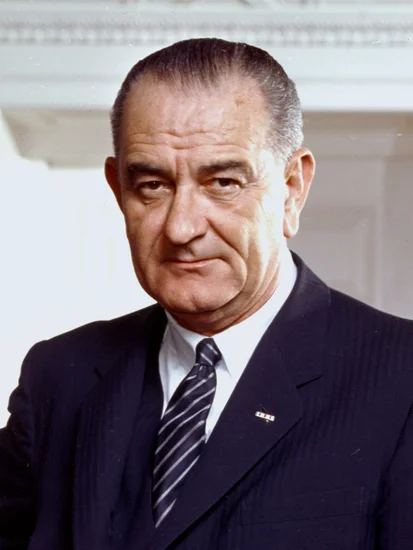
President Lyndon B. Johnson nominated Solicitor-General Thurgood Marshall to become the first African American justice on the U.S. Supreme Court. Marshall’s nomination represented a historic milestone in American civil rights progress.
The appointment marked a transformative moment for judicial diversity and equality. Marshall’s distinguished legal career included his successful argument in Brown v. Board of Education before joining the nation’s highest court.
1982 – Fahd Becomes King of Saudi Arabia

Crown Prince Fahd ascended to the Saudi throne following the death of his brother, King Khalid. The succession marked a new chapter in Saudi Arabia’s political development and regional influence.
King Fahd’s reign would span over two decades, during which he modernized the kingdom’s infrastructure and strengthened international relationships. His leadership significantly shaped Middle Eastern politics and global energy markets.
2000 – Historic Inter-Korea Summit Begins

President Kim Dae-jung of South Korea met with North Korean leader Kim Jong-il in Pyongyang for the first inter-Korean summit. The unprecedented diplomatic meeting raised hopes for Korean Peninsula reunification.
The historic encounter marked a breakthrough in decades of Cold War tensions between the divided nations. Both leaders discussed economic cooperation and family reunification programs during their groundbreaking talks.
2002 – United States Withdraws from ABM Treaty
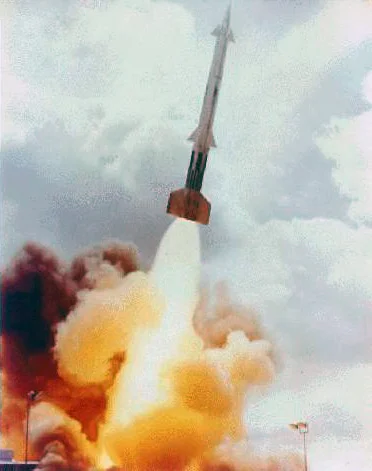
The United States formally withdrew from the Anti-Ballistic Missile Treaty, ending a cornerstone arms control agreement from the Cold War era. The decision reflected America’s changing strategic priorities in the post-9/11 security environment.
This withdrawal enabled the development of national missile defense systems previously prohibited by the treaty. The move sparked international debate about nuclear deterrence and global arms control frameworks.
Military and Naval History on June 13
1917 – Deadliest German Air Raid on London
German Gotha G.IV bombers executed their most devastating air raid on London during World War I. The attack killed 162 civilians, including 46 children, and wounded 432 others in a display of aerial warfare’s growing destructive power.
The raid demonstrated the vulnerability of civilian populations to strategic bombing campaigns. This attack marked a turning point in warfare, showing how air power could directly target enemy home fronts.
1944 – Battle of Villers-Bocage Tank Engagement
German tank ace Michael Wittmann launched a devastating ambush against elements of the British 7th Armoured Division near Villers-Bocage. His single Tiger I tank destroyed fourteen tanks, fifteen personnel carriers, and two anti-tank guns in a legendary engagement.
This remarkable tactical victory demonstrated the effectiveness of German heavy tank designs and experienced crews. Wittmann’s achievement became one of the most celebrated individual tank actions in military history.
1944 – First V1 Flying Bomb Attack

Germany launched its first V1 Flying Bomb attack against England, inaugurating a new phase of aerial warfare. Only four of the eleven revolutionary “buzz bombs” successfully struck their intended targets during this initial assault.
The V1 campaign represented Nazi Germany’s attempt to terrorize British civilians through automated weapons. These early cruise missiles marked a technological leap forward in long-range precision strike capabilities.
1952 – Catalina Affair Incident

A Swedish Douglas DC-3 aircraft was shot down by a Soviet MiG-15 fighter over the Baltic Sea. The incident escalated Cold War tensions and highlighted the dangers of intelligence gathering operations near Soviet airspace.
The attack killed all eight crew members aboard the Swedish reconnaissance aircraft. This confrontation demonstrated how quickly Cold War surveillance missions could escalate into deadly international incidents.
Science and Discovery Milestones on June 13
1983 – Pioneer 10 Leaves Solar System

Pioneer 10 became the first human-made object to leave the central Solar System by passing beyond Neptune’s orbit. This historic achievement marked humanity’s first successful venture into interstellar space.
The spacecraft’s journey represented a monumental milestone in space exploration and human technological achievement. Pioneer 10 carried a golden plaque designed to communicate with potential extraterrestrial civilizations.
2010 – Hayabusa Asteroid Sample Return

The Japanese spacecraft Hayabusa successfully returned to Earth carrying particles from asteroid 25143 Itokawa. The capsule landed in the Australian Outback, completing humanity’s first successful asteroid sample return mission.
This groundbreaking achievement opened new frontiers in planetary science and space exploration. The recovered samples provided unprecedented insights into the early solar system’s formation and composition.
2027 – Volkswagen Emissions Scandal Fine
Volkswagen faced a massive one billion euro fine over the emissions scandal that rocked the automotive industry. The penalty reflected the severity of the company’s systematic deception regarding diesel engine emissions.
The scandal exposed widespread corporate fraud and triggered global regulatory reforms in automotive testing. This case fundamentally changed how governments monitor and verify vehicle emissions standards worldwide.
Cultural and Arts Events on June 13
1927 – Lindbergh’s New York Ticker Tape Parade

Aviator Charles Lindbergh received a triumphant ticker tape parade up Fifth Avenue in New York City following his historic transatlantic flight. Millions of Americans celebrated the young pilot’s unprecedented achievement.
The parade represented a defining moment in American aviation history and national pride. Lindbergh’s accomplishment inspired a generation of pilots and accelerated commercial aviation development.
2005 – Michael Jackson Acquitted of Charges
A jury acquitted pop superstar Michael Jackson of charges alleging child molestation in a highly publicized trial. The verdict concluded months of intense media coverage and speculation about the King of Pop’s fate.
The trial’s outcome preserved Jackson’s freedom but significantly impacted his public image and career. The case highlighted the intersection of celebrity culture, criminal justice, and media sensationalism.
1971 – Pentagon Papers Publication Begins
The New York Times began publishing the Pentagon Papers, revealing classified government documents about Vietnam War decision-making. The leaked documents exposed significant discrepancies between public statements and private assessments.
This publication marked a watershed moment in American journalism and government transparency. The Pentagon Papers fundamentally altered public understanding of the Vietnam conflict and government accountability.
Religious and Social Events on June 13
1965 – Martin Buber Dies

Austrian-Israeli philosopher and theologian Martin Buber passed away, leaving behind a profound legacy in religious thought and human relations. His influential work “I and Thou” revolutionized understanding of interpersonal relationships and divine connection.
Buber’s philosophical contributions bridged Jewish mysticism and modern existentialism. His dialogical philosophy emphasized the fundamental importance of authentic human encounter and mutual recognition.
1977 – James Earl Ray Recaptured
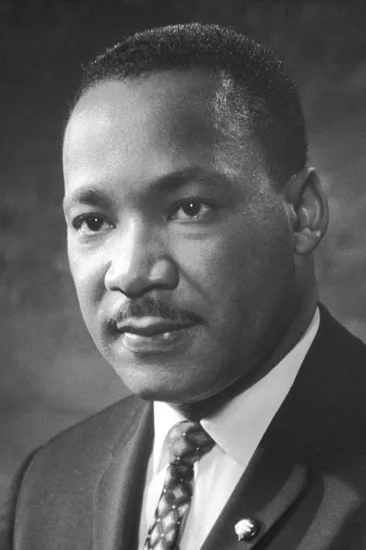
Convicted Martin Luther King Jr. assassin James Earl Ray was recaptured after escaping from prison three days earlier. The manhunt for King’s killer gripped the nation and highlighted ongoing tensions surrounding the civil rights leader’s murder.
Ray’s escape attempt renewed public attention to the assassination and conspiracy theories surrounding King’s death. His recapture ensured continued imprisonment for one of America’s most notorious criminals.
1990 – Romanian Mineriad Violence
The June 1990 Mineriad began in Romania as miners violently suppressed anti-government protesters in Bucharest. At least 240 strikers and students were arrested or killed during the chaos following Romania’s first post-Ceaușescu elections.
The violence exposed deep divisions within Romanian society during its transition from communism. The Mineriad demonstrated how fragile democratic institutions remained in Eastern Europe’s post-communist transformation.
Business and Economic Events on June 13
1994 – Exxon Valdez Liability Verdict
A jury in Anchorage, Alaska, found Exxon and Captain Joseph Hazelwood liable for the devastating Exxon Valdez oil spill. The verdict enabled victims to seek $15 billion in damages for environmental and economic losses.
The decision established crucial precedents for corporate environmental responsibility and maritime safety. The case demonstrated how industrial accidents could result in massive financial liability for negligent companies.
1999 – BMW Wins Le Mans
BMW achieved victory at the prestigious 24 Hours of Le Mans endurance race, showcasing German automotive engineering excellence. The win demonstrated BMW’s commitment to motorsports and high-performance vehicle development.
This triumph reinforced BMW’s reputation as a premier luxury automotive manufacturer. The Le Mans victory provided valuable marketing benefits and technical insights for the company’s road car development.
2018 – Volkswagen Emissions Fine
Volkswagen received a one billion euro fine for the emissions scandal that damaged the company’s reputation worldwide. The penalty reflected the severity of systematic deception in diesel engine emissions testing.
The scandal fundamentally changed automotive industry regulations and consumer trust. This case established new standards for corporate accountability in environmental compliance and consumer protection.
Transportation and Infrastructure on June 13
1996 – Garuda Indonesia Flight 865 Crash

Garuda Indonesia Flight 865 crashed during takeoff from Fukuoka Airport, killing three people and injuring 170 passengers. The accident highlighted ongoing aviation safety challenges in international commercial aviation.
The crash prompted investigations into aircraft maintenance procedures and pilot training protocols. This incident contributed to improved safety standards and emergency response procedures at international airports.
2021 – Zhangwan Gas Explosion
A devastating gas explosion in Zhangwan district of Shiyan city, China, killed at least 12 people and wounded over 138 others. The tragedy highlighted infrastructure safety concerns in rapidly developing urban areas.
The explosion prompted renewed scrutiny of gas pipeline safety and urban planning regulations. Chinese authorities implemented stricter safety protocols for gas distribution systems following this deadly incident.
2023 – Niger River Wedding Boat Tragedy
At least 100 people died when a wedding boat capsized on the Niger River in Nigeria’s Kwara State. The disaster highlighted transportation safety challenges in rural African communities dependent on river travel.
The tragedy underscored the need for improved maritime safety regulations and emergency response capabilities. Many remote communities rely on inadequately maintained boats for essential transportation needs.
Sports and Recreation on June 13
1973 – Dodgers Infield Record Begins
Los Angeles Dodgers teammates Steve Garvey, Davey Lopes, Ron Cey, and Bill Russell played together as an infield for the first time against the Philadelphia Phillies. This quartet would establish a Major League Baseball record by staying together for 8½ years.
The infield combination became one of baseball’s most celebrated and durable units. Their longevity and success helped anchor the Dodgers’ competitive teams throughout the 1970s and early 1980s.
1957 – Irving Baxter Dies

American high jumper and pole vaulter Irving Baxter passed away, concluding a pioneering career in track and field athletics. Baxter competed in the early modern Olympic Games and helped establish American dominance in jumping events.
His athletic achievements contributed to the development of modern track and field techniques. Baxter’s legacy influenced generations of American jumpers and elevated the sport’s profile in international competition.
1993 – Deke Slayton Dies
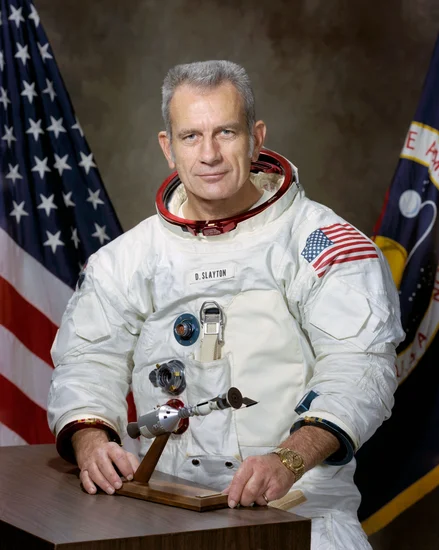
American astronaut and test pilot Deke Slayton died, ending a distinguished career in aerospace and space exploration. Slayton served as one of the original Mercury Seven astronauts and later directed NASA’s astronaut selection process.
His contributions to America’s space program extended far beyond his own flights. Slayton’s leadership helped shape the astronaut corps and advance human spaceflight capabilities during the Cold War era.
Notable Births on June 13
1911 – Luis Walter Alvarez, Nobel Prize-Winning Physicist

American physicist Luis Walter Alvarez was born, destined to become one of the twentieth century’s most influential scientists. His groundbreaking research in particle physics earned him the Nobel Prize in Physics in 1968.
Alvarez revolutionized experimental physics through his development of the hydrogen bubble chamber. His later work with his son proposed the asteroid impact theory for dinosaur extinction, fundamentally changing paleontology.
1928 – John Forbes Nash Jr., Mathematical Genius
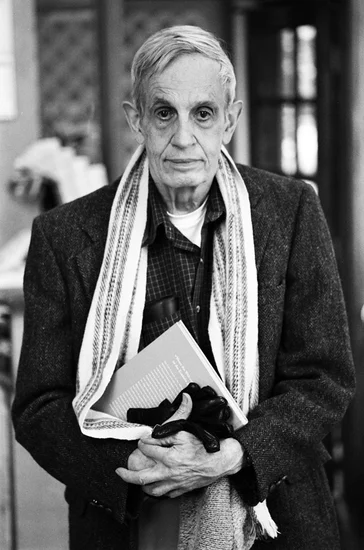
American mathematician John Forbes Nash Jr. entered the world, later becoming famous for his contributions to game theory and differential geometry. His work earned him the Nobel Prize in Economics in 1994.
Nash’s life story, including his struggle with schizophrenia and eventual recovery, inspired the Academy Award-winning film “A Beautiful Mind.” His mathematical insights continue influencing economics, computer science, and strategic decision-making.
1943 – Malcolm McDowell, Acclaimed Actor

English actor Malcolm McDowell was born, destined to become one of cinema’s most memorable performers. His breakthrough role in “A Clockwork Orange” established him as a fearless and versatile actor.
McDowell’s career spanned decades and included iconic performances in films like “Caligula” and “Star Trek: Generations.” His distinctive screen presence and willingness to take challenging roles made him a respected figure in international cinema.
1946 – Ban Ki-moon, UN Secretary-General

South Korean diplomat Ban Ki-moon was born, later serving as the eighth Secretary-General of the United Nations from 2007 to 2016. His leadership guided the organization through critical global challenges.
Ban’s tenure emphasized sustainable development, climate change action, and international cooperation. His diplomatic skills and commitment to multilateralism helped strengthen the UN’s role in addressing global issues.
1971 – Chris Evans, Hollywood Star

American actor Chris Evans was born, eventually becoming one of Hollywood’s most recognizable leading men. His portrayal of Captain America in the Marvel Cinematic Universe made him a global superstar.
Evans’ career encompasses both blockbuster entertainment and dramatic performances. His dedication to social causes and political activism has made him a influential voice beyond the entertainment industry.
Notable Deaths on June 13
1948 – Osamu Dazai, Japanese Literary Master

Japanese author Osamu Dazai died, leaving behind a profound literary legacy that continues influencing writers worldwide. His novel “The Setting Sun” captured the spiritual crisis of post-war Japan.
Dazai’s deeply personal and psychological writing style revolutionized Japanese literature. His exploration of existential themes and human vulnerability resonated with readers struggling with modern life’s complexities.
1986 – Benny Goodman, King of Swing
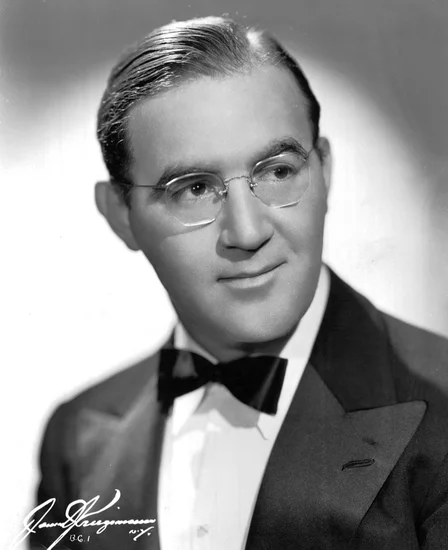
American clarinet player and bandleader Benny Goodman passed away, concluding a legendary career that defined the Swing Era. His innovative arrangements and virtuosic playing transformed American popular music.
Goodman broke racial barriers by featuring integrated bands during the height of segregation. His contributions to jazz and popular music earned him recognition as one of America’s greatest musical innovators.
2008 – Tim Russert, Distinguished Journalist

American journalist and lawyer Tim Russert died suddenly, shocking the media world and political establishment. His incisive interviewing style on “Meet the Press” made him one of television’s most respected political journalists.
Russert’s commitment to thorough preparation and tough questioning set new standards for political journalism. His sudden death represented a significant loss for American political discourse and broadcast journalism.
2023 – Cormac McCarthy, Literary Giant

American author Cormac McCarthy passed away, ending one of the most distinguished careers in contemporary American literature. His novels, including “The Road” and “No Country for Old Men,” redefined modern American fiction.
McCarthy’s spare, powerful prose style and exploration of violence and survival influenced countless writers. His Pulitzer Prize-winning work established him as one of America’s greatest living authors.
Holidays and Observances on June 13
International Albinism Awareness Day
The international community observes International Albinism Awareness Day to promote understanding and support for people with albinism. This global initiative raises awareness about the genetic condition and combats discrimination.
The observance highlights the challenges faced by albino individuals, particularly in regions where they face persecution and violence. Educational campaigns promote scientific understanding and human rights protection for affected communities.
Inventors’ Day in Hungary
Hungary celebrates Inventors’ Day to honor innovation and technological advancement within the nation. The holiday recognizes Hungarian contributions to global scientific and technological progress.
This observance encourages creativity and innovation among Hungarian citizens, particularly young people interested in science and engineering. The celebration highlights Hungary’s rich history of scientific achievement and technological development.
Anthony of Padua Feast Day
The Catholic Church celebrates the feast day of Anthony of Padua, one of the most beloved saints in Christian tradition. Known as the patron saint of lost things, Anthony’s devotion attracts millions of faithful worldwide.
Saint Anthony’s reputation for miraculous interventions and his powerful preaching made him a Doctor of the Church. His feast day represents one of the most widely observed religious celebrations in the Catholic calendar.
